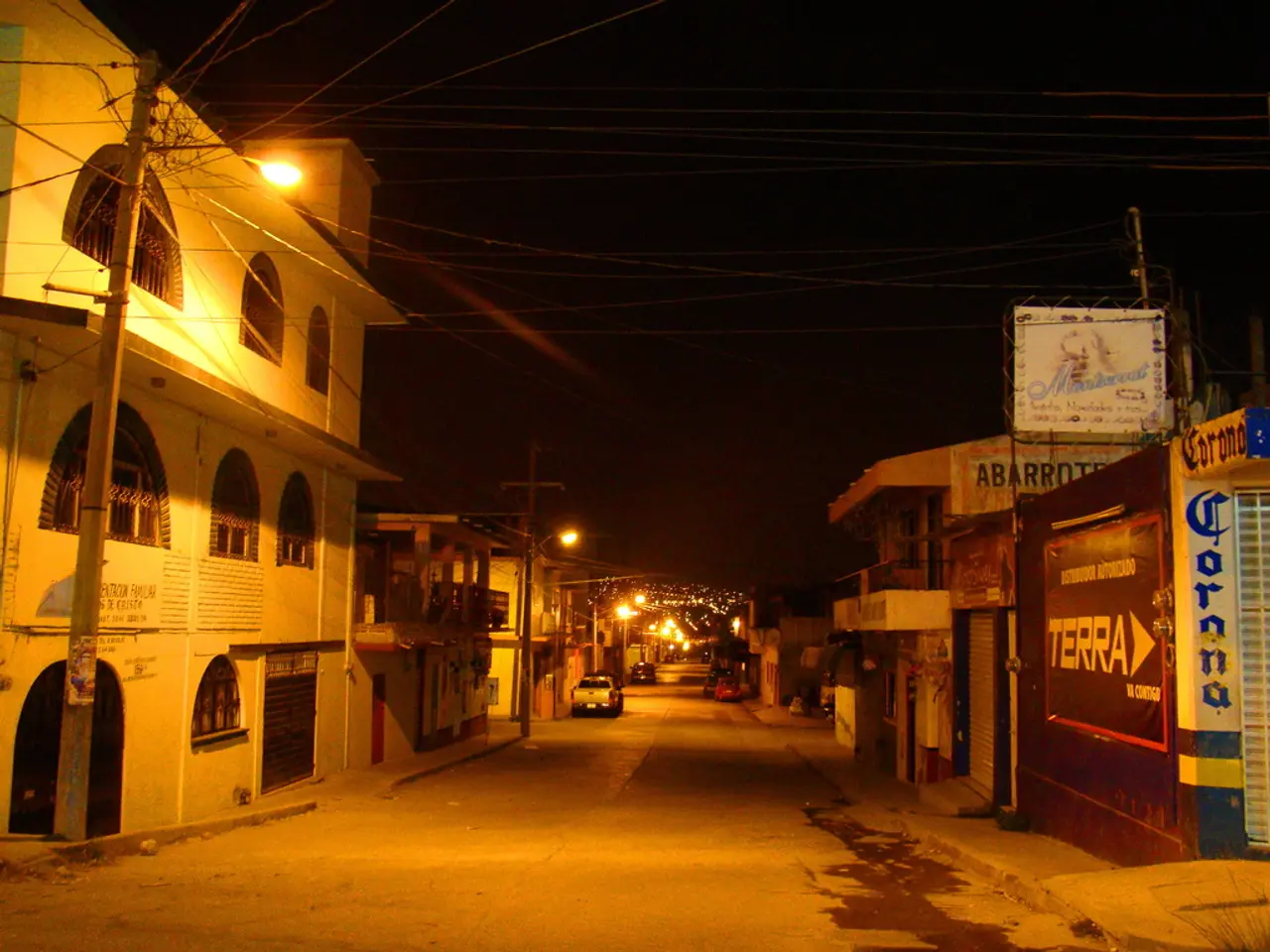Expanding Renewable Energy Sources to Be Connected With the Power Grid, According to the Commission's Plan
In a significant development, Federal Minister of Economics Katherina Reiche (CDU) announced the commencement of the tendering process for the first gas power plants in 2021. This move comes as Germany continues to navigate its energy transition, aiming to reduce its reliance on fossil fuels while ensuring a stable electricity supply.
Reiche's stance on the issue is not new. She has expressed concerns about the financing of the grid expansion, a concern that stems from her past roles as Chairwoman of the Board at Westenergie and Chief Executive Officer at the municipal utility association VKU, whose subsidiary Westnetz is Germany's largest distribution grid operator.
The deputy head of the BDI, Holger Loesch, supports Reiche's position, advocating for a more cost-effective and realistic energy transition planning. He believes that linking the expansion of renewable energy sources with the power grid could be a step in the right direction.
Reiche emphasizes the importance of gas power plants during periods when wind turbines and solar plants are not producing sufficient electricity. Such periods, known as 'dark doldrums', can last several weeks. The minister insists that these power plants are crucial for maintaining a steady electricity supply.
The EEG amendment predicts that electricity consumption could reach 670 TWh by 2026, and potentially double to 1,000 TWh by 2035. This projected increase in consumption has raised concerns about the cost of expanding the power grid. According to 'Bild am Sonntag', the estimated cost for this expansion by 2045 is 600 billion euros.
BMW CEO, Oliver Zipse, shares similar concerns. He warns of potential overloading of the power grid if only electric cars can be produced from 2035 as prescribed by the EU. Zipse estimates that at least 30 to 40 years are needed to equip the German power grid for a 100% electric car share.
Zipse's statements about the power grid's readiness for electric cars were made to 'Bild am Sonntag'. He points out that the high costs of this conversion have been overlooked so far. By 2026, electricity consumption in Germany was 464 terawatt hours (TWh), and by 2020, it was 464 TWh, indicating a steady increase in consumption.
Despite these challenges, Reiche remains committed to a balanced energy transition. She believes that linking the expansion of renewable energy sources with the power grid is a necessary step towards a sustainable future. As the tendering process for gas power plants moves forward, it will be interesting to see how Germany continues to navigate its energy transition.
Read also:
- Racing ahead in Renewable Energy Dominance: Changzhou, Jiangsu Pushes for Worldwide Renewable Energy Ascendancy
- The potential consequences of the European Union's Clean Hydrogen strategy in relation to exacerbating our global climate emergency.
- Unchecked carbon emissions could potentially lead the world to revert to coal usage, according to a knowledgeable source.
- The Commission has played a role in formulating the report detailing the progress of the program.








